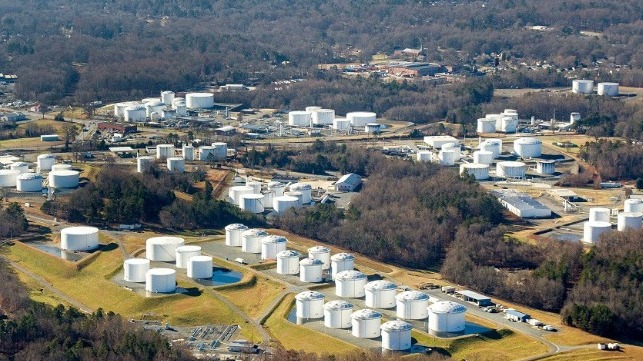Biden: No Evidence That Russia Was Behind Pipeline Cyberattack

In a statement Monday, U.S. President Joe Biden said that there is no evidence that the cyberattack on the U.S. East Coast's primary fuel pipeline was attributable to the Russian government. However, "there's evidence that the actors' ransomware is in Russia," he said, adding that the Kremlin has "some responsibility to deal with this."
Biden is planning a meeting with Russian President Vladimir Putin to discuss the attack.
On Friday, operator Colonial Pipeline acknowledged that a cyberattack had forced it to shut down its operations and isolate a portion of its computing networks. It later clarified that the incident was a ransomware attack.
The private hacking group DarkSide has acknowledged responsibility for the attack. In a statement on its dark-web site, the group - which may be domiciled in Russia, and does not attack targets on computers that are set up to use Slavic languages - said that it was motivated solely by profit and had no interest in causing major disruptions.
In a statement Monday, Colonial Pipeline said that it was working to restore operations by alternative methods, and it plans to have a substantial return to functionality by the end of the week. “While this situation remains fluid and continues to evolve, the Colonial operations team is executing a plan that involves an incremental process that will facilitate a return to service in a phased approach,” the company said.
The U.S. Cybersecurity and Infrastructure Security Agency (CISA) is involved in investigating the attack and is helping Colonial to restore its operations. Colonial has also retained the services of cybersecurity consulting company FireEye.

that matters most
Get the latest maritime news delivered to your inbox daily.
The Colonial Pipeline stretches all the way from Texas to New Jersey, and it distributes vital supplies of petroleum products like diesel, gasoline and jet fuel to every state in between. It carries about 2.5 million barrels of product per day - about half of the fuel supply for the East Coast.
So far, according to Reuters, the shutdown has not had an appreciable effect on tanker fixture activity on the European market. The journey from Rotterdam to the U.S. East Coast would take a product tanker about ten days, putting the first arrival of relief shipments after the predicted resumption of normal supplies. Traders are reportedly waiting to see if Colonial will be able to restore normal operations before committing to charters. The disruption may prompt the diversion of tankers already under way, as traders may opt to direct their cargoes towards ports where the shutdown has affected pricing.
